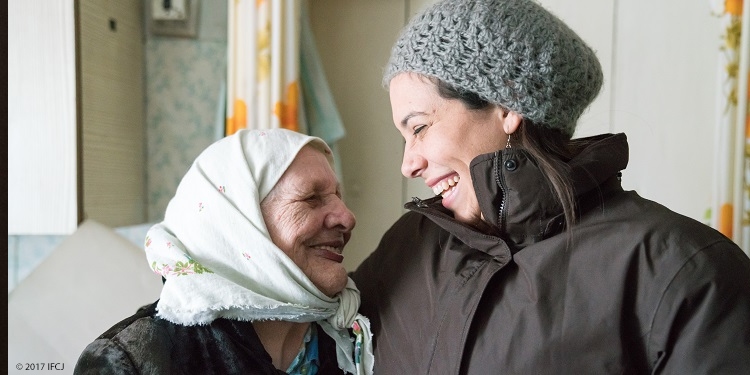Never Abandon God’s Children
Yael Eckstein | December 18, 2023

“How can I go back to my father if the boy is not with me? No! Do not let me see the misery that would come on my father.” — Genesis 44:34
Each week in synagogue, Jews read through the Torah from Genesis to Deuteronomy. The Torah portion for this week is Vayigash, which means “and he approached,” from Genesis 44:18–47:27.
Many of the elderly Jewish Holocaust survivors in Ukraine helped by The Fellowship might not survive the winter without us. Those who deliver aid made possible by The Fellowship’s supporters often travel over two hours by car, followed by a twenty-minute hike through the woods, just to reach one person.
To some people, it seems crazy to work so hard to help just one individual. But as I learned from my father, when we have the ability to help someone, we dare not abandon God’s children in need.
In this week’s Torah portion, we read how Judah tried to secure the release of Benjamin from Joseph, who had yet to identify himself as their long-lost brother. All Judah knew was that Joseph was the Prime Minister of Egypt and he was holding Benjamin captive. As a test for his brothers, Joseph had intentionally set up Benjamin as a criminal when a silver vessel was found in his bag.
The brothers were distraught and feared not only for Benjamin’s life, but also for the well-being of their father, Jacob. Judah pleaded with Joseph and cried out, “How can I go back to my father if the boy is not with me?”
Judah’s anguished plea revealed to Joseph that the bothers had learned from their past mistakes and would never abandon their brother again. In turn, Joseph revealed his identity and forgave them.
Never Abandon God’s Children
I think Judah’s words provide a powerful message for all of us today. We, too, must ask ourselves how we can go about our normal, relatively comfortable lives, while our brothers and sisters suffer. We, too, need to resolve never to abandon God’s children—our brothers and sisters—in need. Like Judah, we dare not bring misery to our Father because we neglected those whom we can help.
In Hebrew, the word for charity is tzedakah, which shares the same root as the word for justice. This is because charity is not just an act of kindness; it is our spiritual obligation. We must do our best to help those in need, even when it is difficult to do so. We bring great pleasure to our Father in heaven when we take good care of His children.
Be a Holy Land Hero
Even as the world turns its back on the Jewish people, you can remind them they are not forgotten. Pledge to pray for and support Israel in her time of need.
